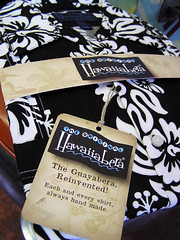WanderPod Brings Wi-Fi Anywhere
Dennis Stacey had one of the best seats at the Ansari X Prize launches, right alongside the taxiway where Burt Rutan's SpaceShipOne rolled out to make history earlier this month. But the Montreal entrepreneur was at California's Mojave Airport not to catch a space launch, but to prove that he can bring internet access to people wherever they happen to be.
Stacey, 30, is CEO of WanderPort Wireless, a 2-year-old firm that's established itself as a provider of Wi-Fi hot spots in business, boutique and luxury hotels in Canada and the United States. Now Stacey and his 15-person firm want to take wireless connectivity where it's never gone before.
WanderPort sent a small crew to Mojave to unveil the WanderPod, a rolling Wi-Fi hot spot consisting of a small trailer tricked out with a diesel generator, an antenna, juiced-up access-point hardware and a satellite dish that serves as a broadband data link.
The target market: anyone who needs to get on the net from remote locations or places where infrastructure has been knocked out.
What Stacey has in mind is a place like Florida, in the wake of its recent series of hurricanes, or even Sudan, where the United Nations and aid groups are responding to the refugee crisis in Darfur. In other words, places well beyond conventional net access.
"We'd like to see this used by disaster-recovery groups like the Red Cross, like FEMA (Federal Emergency Management Agency), or even engineering groups rebuilding infrastructure can use this sort of thing," Stacey said.
The pod could also be useful for film crews in the field as well as for providing connectivity at large-scale events in out-of-the-way places, like the X Prize race.
Until a month or so ago, though, the WanderPod was just an idea. That's when Jack Bader, of St. Louis-based network services company NetEffects and director of infrastructure for the X Prize event at Mojave Airport, went googling in search of backup Wi-Fi providers. "I contacted them with what I call one of my 'cold mails,'" Bader said. "And they agreed to show up." WanderPort got in touch with Wisp Gear, the Austin, Texas, company that handles most of its Wi-Fi deployments. Wisp got to work putting together the WanderPod trailer -- complete with a checkerboard floor and the WanderPort logo in neon -- and hauled it to the Southern California desert. By the time the WanderPort crew arrived, though, its job had gone from backup to essential.
A documentary film crew and a webcast team had set up camp next to the tarmac and needed Wi-Fi access, so the WanderPod was set up to serve them.
"We weren't planning to have Wi-Fi in this particular area," Bader said. "But when we got there, everyone wanted it. On an event like this, everything's in flux, everyone's got a laptop, and they just expect" to be able to get online.
Stacey said the WanderPod, designed to let anyone within 2,000 feet get on the net and which handled as many as 200 users at a time, performed well during its live-fire test in the desert. But he said Mojave was just the beginning of what his company hopes will turn into a significant business.
He said the pod trailers will cost about $50,000 apiece to produce, complete with heavy-duty tires and suspensions so they can be hauled into remote areas. WanderPort hopes to sell the units for $80,000 each, he said, adding that the company has full funding to go into production when it starts getting orders.
But it's unclear how big the market will be. The WanderPod has no apparent competition and the idea of using it in out-of-the-way places beyond the reach of cellular service makes sense, said Jupiter Research Wi-Fi analyst Julie Ask. But she said its usefulness could be limited by practical factors such as the performance of satellite broadband and the difficulty of hauling a trailer into truly remote places.
"Satellite is weak. If the weather's bad, if it's foggy, if it's pouring down rain, that'll hurt you," Ask said. "My gut reaction is that this sounds a little dreamy."
Stacey said his company plans to take the WanderPod on the road to show it off to surfers and potential customers in New York, Boston, Chicago, Toronto and Montreal.
Wi Fi Me
HMK
Wednesday, October 13, 2004
Subscribe to:
Comments (Atom)




























































